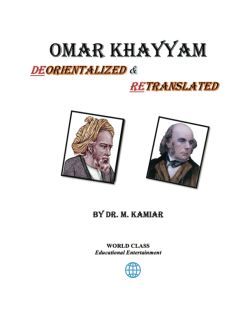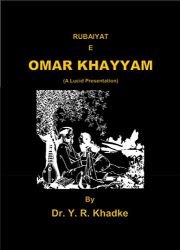Rubaiyat of Omar Khayyam in the interpretation of the Russian scientist Z.N. Vorozheykina. Sultanova Zulkhumor Sabatullaevna
In: ANGLISTICUM. Journal of the Association-Institute for English Language and American Studies, Vol. 12 (2023), 11 (November), p. 27-33
In this article, Z.N.Vorozheykina, first of all, paid attention to the socio-ethical events that were the focus of the poet’s attention, and in this context, analyzed the meaning and ideological essence of the poet’s rubai, and in the article “Umar Khayyom and Khayyom’s rubai” first Khayyom indicates the sources that informed him as a poet. In particular, he mentions the testimonies of “Khayyam’s younger contemporary, historian Abulhasan Bayhaqi”, Arabic-speaking historian Kifti, Arabic-speaking jurist Najmuddin Razi about “Khayyam’s Arabic poems and his Persian rubai”. This scientist singles out Khayyam’s poetry in the rubai genre and considers “the main content of his poems to be philosophical and joyous lyrics.” In this context, analyzing Khayyam’s Rubaiyat based on a mental approach, he comes to the conclusion that it is a “great idea”. Taking into account the personality of the poet Khayyam, that is, the confirmation of the right of every person living on earth to live happily, allows us to consider Khayyam the greatest humanist of the past,” he says (45, 13). From this point of view, the researcher analyzes samples from Khayyam’s Rubaiyat. and shows its essence and main approaches of thought. Segregation of Khayyam’s work into the world of topics, identification of ideological directions, recognition and evaluation of Khayyam’s work, the merits of this orientalist are very great. Omar Khayyam’s biography occupies a special place in Russian oriental studies. In the scientific works devoted to the study of this topic, issues such as his birthplace, social status, date and place of birth, personal and family life, and his relationship with his contemporaries were evaluated from different angles.

